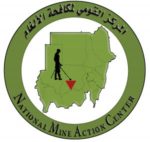Explosive ordnance risk education (EORE) refers to activities which seek to reduce the risk of injury from mines/unexploded ordnance by raising awareness and promoting behavioral change, including public information dissemination, education and training, and community mine action liaison. Although the discipline is widely called mine risk education.
It seeks to prevent harm to civilians from all types of explosive devices. EORE covers the dangers not only of land mines but also of explosive remnants of war (ERW).
Delivery of EORE as an important part of risk education, risk reduction and community liaison efforts can prove an effective and efficient means of addressing the diverse needs of communities living with risk.
EORE has three main goals:
- To minimize deaths and injuries from landmines and ERW.
- To reduce the social and economic impact from landmines and ERW.
- To support development.
EORE project circle
The Explosive ordnance risk education department at the National Mine Action Center oversees all of the EORE activities which have been implemented by the national (local) organizations.
The role of the EORE Department is to:
- Supervise EORE activities
- Follow up and monitor EORE activities
- Facilitate EORE
- Co-ordinate with implementing partners
- Evaluate EORE projects
- Regulate EORE according to mine action standards
The way forward:
- EORE is most effective when undertaken as a multi-disciplinary activity and delivered in the context of the diverse risk reduction needs of any given community. EORE should adapt to different audiences and risk- taking behaviors in its messages and techniques.
- Action 21 of the Nairobi action plan remains relevant in a number of aspects, including that EORE programme should take into consideration age, gender, social, economic, political and geographical factors.
- EORE is most useful and effective when delivered as part of the wider risk reduction, risk education and community liaison efforts. As an aspect of community liaison, EORE can help provide affected communities with a voice.
- EORE should be part of overall strategic thinking and planning in mine action, both at the national and international levels.
